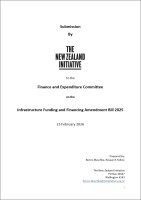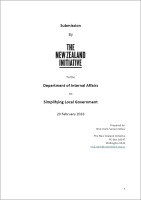
Submission: Infrastructure Funding and Financing Amendment Bill 2025
1. INTRODUCTION 1.1 This submission on the Infrastructure Funding and Financing Amendment Bill 2025 (the Bill) is made by The New Zealand Initiative (the Initiative), a Wellington-based think tank supported primarily by major New Zealand businesses. Read more










